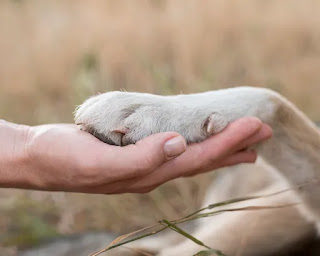The Importance of Animal Communication: Respecting Free Will and Consent in Animal Welfare
Animal welfare is a topic that often sparks passionate discussions and debates. In a recent class on the subject, we delved into the fascinating realm of animal communication and its significance in ensuring the well-being of animals. During these discussions, a consensus emerged among us: the paramount importance of recognizing and respecting the free will and consent of animals. This blog post aims to explore the crucial role of animal communication in understanding their perspective, negotiating with them, and promoting a harmonious relationship built on trust, honesty, and mutual respect.
Respecting Animal Perspectives
We have a tendency to assume that we know what is best for animals without genuinely considering their opinions and desires. However, animals possess their own unique perspectives and preferences, and it is essential to acknowledge and honor them. Animal communication serves as a bridge that allows us to comprehend their point of view, providing valuable insights into their needs and desires. By listening and being receptive to their messages, we can form a more compassionate understanding of their experiences.
Negotiation and Consent
Animals, like humans, deserve the right to consent and make choices that impact their lives. Through animal communication, we can engage in a process of negotiation with them. While we may not always agree with their perspective or desires, it is crucial to give them the space to voice their opinions and preferences. In turn, they respect our willingness to listen and acknowledge their viewpoints. This mutual respect forms the foundation for effective collaboration and decision-making.
Using Discernment and Doing What's Right
As humans, we bear the responsibility of using our discernment to make informed decisions that promote the welfare of animals. This includes considering their opinions, desires, and well-being while ensuring their safety and health. By allowing animals to express their opinions and being open to their communication, we foster an environment of trust and understanding. While disagreements may arise, it is essential to respectfully navigate these differences and find common ground that benefits both animals and humans.
Honesty and Trust
Honesty plays a vital role in animal communication and welfare. Animals have an innate ability to sense our true intentions, and being honest with them helps establish trust. When we are transparent about our intentions and actions, animals can better comprehend our motives, fostering a sense of security and cooperation. Trust is the bedrock of any successful relationship, even when we may not see eye to eye with animals on certain matters.
Rescuing Animals and Developing Trust
Animal rescue is an act of compassion and empathy. In some cases, animals may not seek our help, but if their situation necessitates intervention, it is our responsibility to act in their best interest. However, even in these situations, animals expect honesty from us. It is crucial never to betray their trust by making promises we cannot fulfill or pretending to offer assistance while acting contrary to it. There are several occassions where we may feel compelled to do things contrary to the animals wishes. Even at these times, the animals only expect us to be honest about our intentions. They don't expect us to always agree with them and do as they please. However, being honest with our intentions and informing them about it is the key to developing a respectful relationship with each with other. By maintaining honesty throughout the rescue process, we preserve the trust necessary for a positive outcome.
Animal communication serves as a powerful tool for understanding and advocating for the welfare of animals. Recognizing the free will and consent of animals is essential for building a relationship rooted in respect and empathy. By listening to their perspectives, negotiating with them, and using our discernment to make informed decisions, we can work together with animals to ensure their well-being. Honesty and trust form the foundation of this collaboration, enabling us to navigate disagreements and create a compassionate world where animals are heard, respected, and protected.




Comments
Post a Comment